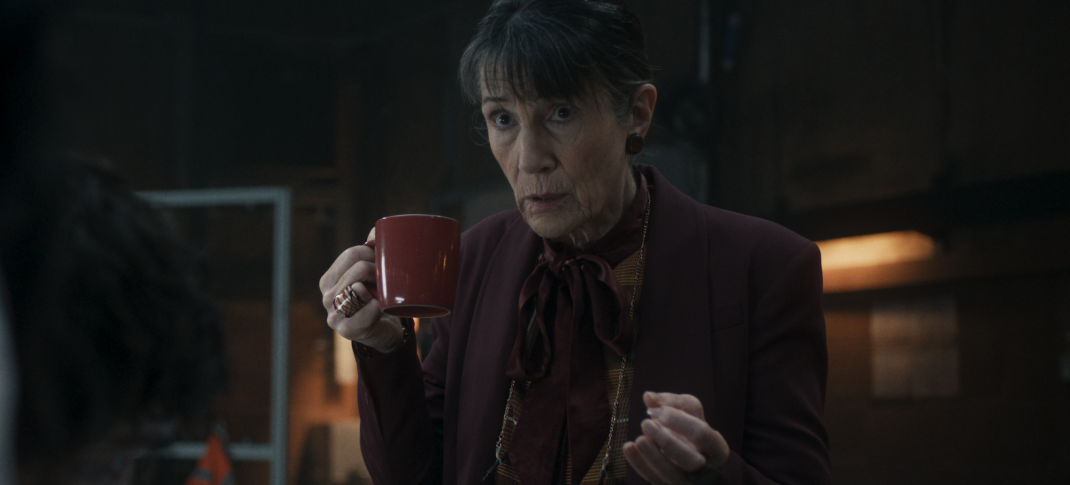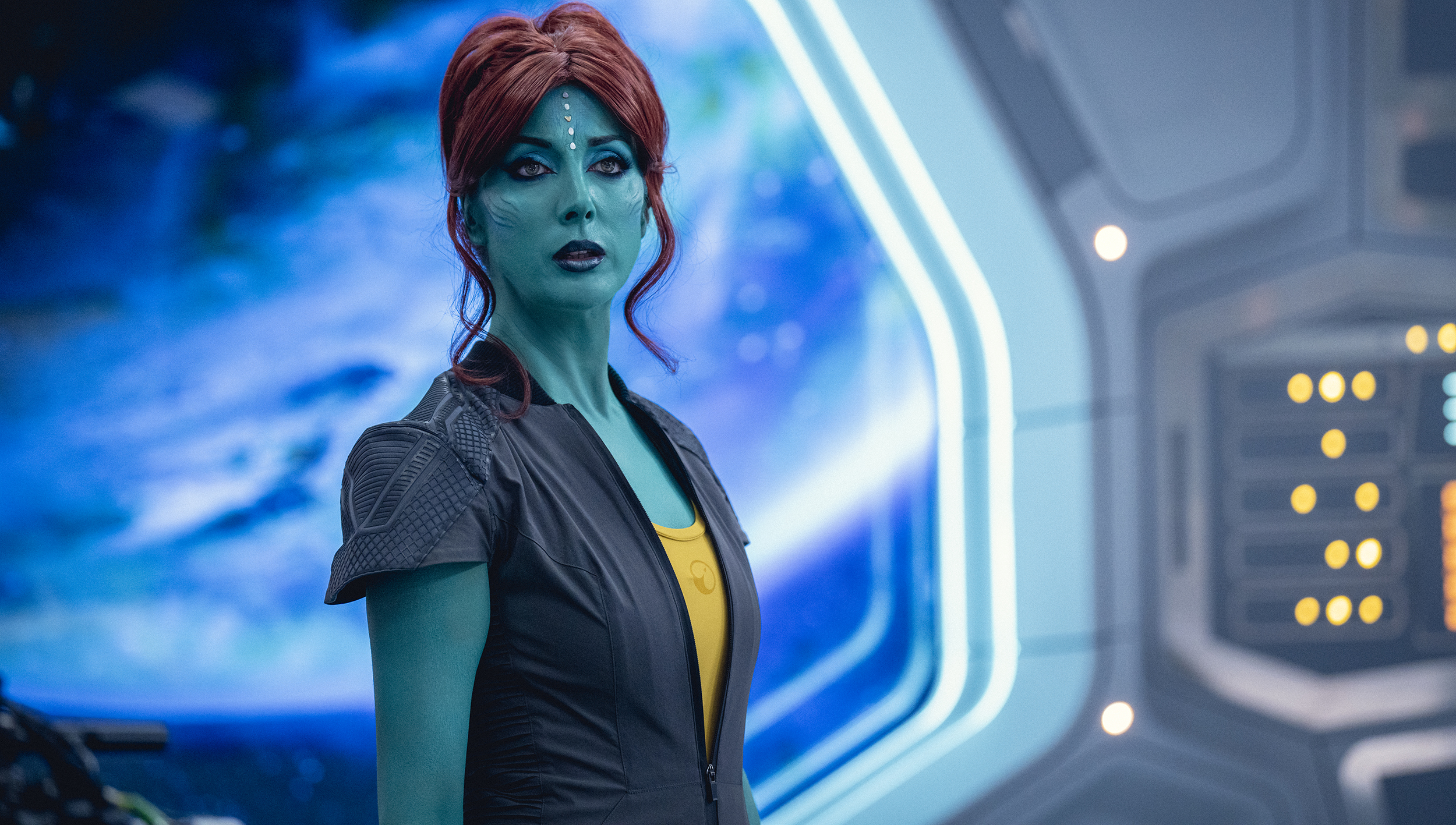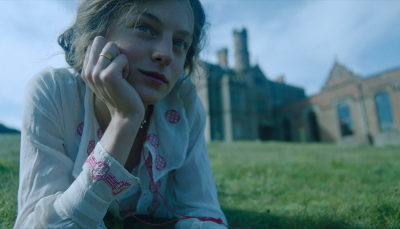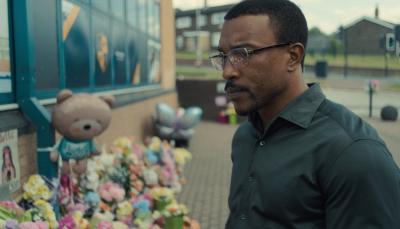In 'Black Mirror' Season 7, Scary Tech Is in the Past

Harriet Walter in "Black Mirror" Season 7
(Photo: Nick Wall/Netflix)
Black Mirror’s whole shtick has always been that it could be true. With episodes set a few years away from, or even with just a few alterations to our current way of life, creator Charlie Brooker’s anthology show has usually served as a cautionary tale about society’s increasing dependence on technology and how nefarious people, governments or even the tech itself may use that to destroy us figuratively and/or physically.
(*That this show started on Channel 4 in the UK before going omnipresent on Netflix in 2016 is the meta icing on that cake).
But the series’ seventh season, which premiered this week on the streamer, seems to take the opposite approach. Most of the six episodes look at what could happen if we let technology have access to the past. What kind of power does tech have on our own memories and on what we choose to forget? Are we playing God if we try to rewrite history or redirect fate? How can anybody be a reliable narrator when there are Kilimanjaro-sized social media footprints of almost everything that’s happened in our lives since Mark Zuckerberg (probably) stole the Winklevoss twins’ idea for a better MySpace? How much power should we give not just people, but entire institutions, to avenge past mistakes or misfortunes?
The two episodes from the new season that most closely try to answer these questions are the third one, titled “Hotel Reverie,” and the fifth, titled “Eulogy.” “Hotel” seems to delve into the meaning of the term “intellectual property” and the flailing, limping final breaths of the Old Hollywood studios (“Please don’t call it content. It makes me heave,” Harriet Walter’s Judith Keyworth, the surviving member of what was once a bustling media studio, deadpans in a definitely meme-able moment). Here, Issa Rae stars as an actress from our timeline who is hired to put a fresh, modern spin on a classic Old Hollywood film by actually entering the movie and essentially replacing the leading man. Things don’t go as planned when a glitch forces her to go off script, resulting in some reverse-Truman Show or Wanda/Vision shenanigans. In “Eulogy,” Paul Giamatti’s Phillip gets a couple’s therapy session from beyond the grave when an old love’s family asks him to upload memories of her to be used at her funeral.
Other episodes play more loosely with these themes. In “Bête Noire,” which stars Siena Kelly and Rosy McEwen as former high school classmates who end up working at the same company, we learn that the wounds of adolescence can take years to heal. “Common People,” which stars Rashida Jones and Chris O’Dowd as a married couple who enter a Faustian bargain when she becomes terminally ill, in an indictment of the healthcare industry.
“USS Callister: To Infinity,” a follow-up to Black Mirror’s own Season 4 episode about a guy who gets even with his coworkers by forcing clones of them to live out his own “Star Trek”-like fantasy, is heavy in the parables that the past always catches up to us and that no one really changes. (The last episode from this season, “Plaything,” is hard to talk about without going into spoilers other than to say that Peter Capaldi plays a tinfoil hatter who is either a narcissist and/or someone who did too many consecutive hits of LSD but who purposely shows up on the government’s radar because of something that happened in his past).
The best and least far-fetched episode of this new season is “Common People.” Directed by Ally Pankiw and written by Brooker with a story by him and Bisha K. Ali, it’s an all-too-relatable story about the impossible costs of healthcare and the heartbreaking decisions that everyday people make on the fly when they’re told that there’s only one, costly, way to save a loved one. The story begins with Jones’ Amanda and O’Dowd’s Mike as two people who are happy enough with their small-town life and then tracks, in detail, the sacrifices they make when she gets sick. It’s a trigger warning for anyone who’s ever had to create (or even just donated to) a GoFundMe.
This isn’t to say that this entire season is a downer. Black Mirror loves to be referential, and this season includes Easter eggs for devoted fans of the franchise. Aside from the inevitable callbacks in the “Callister” sequel, there’s a reference to Streamberry — the fictional streaming site that was used last season as a bite-the-hand-that-feeds-me stand-in for corporate daddy Netflix — and try counting how many times you read or hear the word “Juniper,” which is most likely a reference to the show’s much-celebrated third season episode “San Junipero.”
It also seems like a more personal season of Black Mirror. Every season is about tech, obviously, but every episode of this season also involved scenes where characters screamed at each other because of the ways the tech was being inflicted upon them. (My husband, who wandered behind me periodically when I was watching the screeners, noted that this season seemed to involve a lot of people screaming at other people over desks). This is a good strategy. Because we know that the tech is bad (or at least questionable or suspicious), we can focus on the character interactions instead of trying to guess why it’s terrible. So maybe Brooker and his team are trying to show that there are ways that tech can bring us together?
Black Mirror Seasons 1 through 7 are streaming on Netflix. No word on Season 8 as yet.






